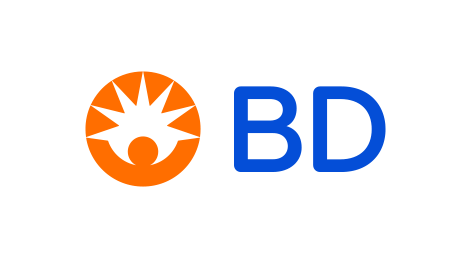CD40 / Brilliant Violet 510 / HB14
Product Details
| Description | BV510 Mouse Anti-Human CD40 | |
|---|---|---|
| Conjugate | Brilliant Violet 510 | |
| Clone | HB14 | |
| Target Species | Human | |
| Applications | FC | |
| Supplier | BD Biosciences | |
| Catalog # | Sign in to view product details, citations, and spectra | |
| Size | ||
| Price | ||
| Antigen | ||
| Host | ||
| Isotype |
About CD40
This gene is a member of the TNF-receptor superfamily. The encoded protein is a receptor on antigen-presenting cells of the immune system and is essential for mediating a broad variety of immune and inflammatory responses including T cell-dependent immunoglobulin class switching, memory B cell development, and germinal center formation. AT-hook transcription factor AKNA is reported to coordinately regulate the expression of this receptor and its ligand, which may be important for homotypic cell interactions. Adaptor protein TNFR2 interacts with this receptor and serves as a mediator of the signal transduction. The interaction of this receptor and its ligand is found to be necessary for amyloid-beta-induced microglial activation, and thus is thought to be an early event in Alzheimer disease pathogenesis. Mutations affecting this gene are the cause of autosomal recessive hyper-IgM immunodeficiency type 3 (HIGM3). Multiple alternatively spliced transcript variants of this gene encoding distinct isoforms have been reported. [provided by RefSeq, Nov 2014]
This gene is a member of the TNF-receptor superfamily. The encoded protein is a receptor on antigen-presenting cells of the immune system and is essential for mediating a broad variety of immune and inflammatory responses including T cell-dependent immunoglobulin class switching, memory B cell development, and germinal center formation. AT-hook transcription factor AKNA is reported to coordinately regulate the expression of this receptor and its ligand, which may be important for homotypic cell interactions. Adaptor protein TNFR2 interacts with this receptor and serves as a mediator of the signal transduction. The interaction of this receptor and its ligand is found to be necessary for amyloid-beta-induced microglial activation, and thus is thought to be an early event in Alzheimer disease pathogenesis. Mutations affecting this gene are the cause of autosomal recessive hyper-IgM immunodeficiency type 3 (HIGM3). Multiple alternatively spliced transcript variants of this gene encoding distinct isoforms have been reported. [provided by RefSeq, Nov 2014]
About Brilliant Violet 510
Brilliant™ Violet 510 (BV510) is a green-emitting non-tandem polymer fluorophore that can be excited by the 405 nm Violet laser and collected using a 510/50 bandpass filter. BV510 has an excitation peak at 405 nm and an emission peak at 510 nm, and is similar to StarBright Violet 515 (Bio-Rad). BV510 is most often used in flow cytometry due to its improved signal-to-noise over alternatives like V500 and AmCyan. This dye is part of the Brilliant™ Violet dye line. BV510 and BV480 are the only dyes in the Brilliant™ Violet dye family that are not tandem fluorophores based off the BV421 polymer core, but they have nearly the same maximum excitation.
Brilliant™ Violet 510 (BV510) is a green-emitting non-tandem polymer fluorophore that can be excited by the 405 nm Violet laser and collected using a 510/50 bandpass filter. BV510 has an excitation peak at 405 nm and an emission peak at 510 nm, and is similar to StarBright Violet 515 (Bio-Rad). BV510 is most often used in flow cytometry due to its improved signal-to-noise over alternatives like V500 and AmCyan. This dye is part of the Brilliant™ Violet dye line. BV510 and BV480 are the only dyes in the Brilliant™ Violet dye family that are not tandem fluorophores based off the BV421 polymer core, but they have nearly the same maximum excitation.
Experiment Design Tools
Panel Builders
Looking to design a Microscopy or Flow Cytometry experiment?
Validation References
Reviews & Ratings
| Reviews |
|---|
Looking for more options?
2214 CD40 antibodies from over 54 suppliers available with over 123 conjugates.





